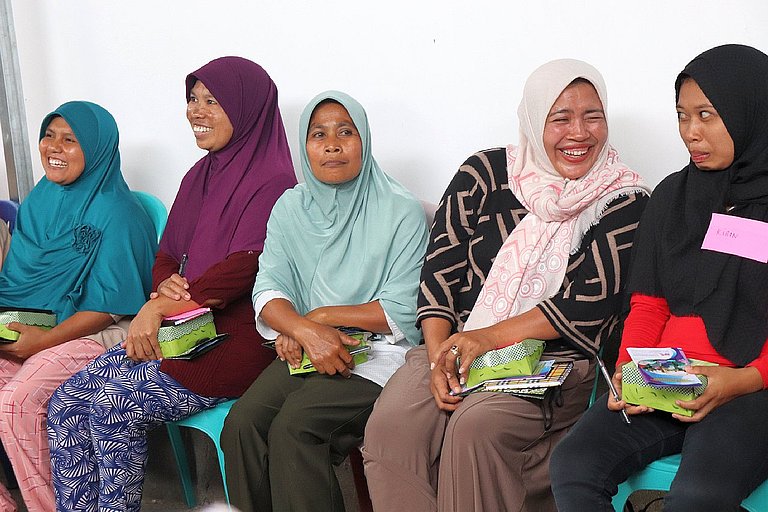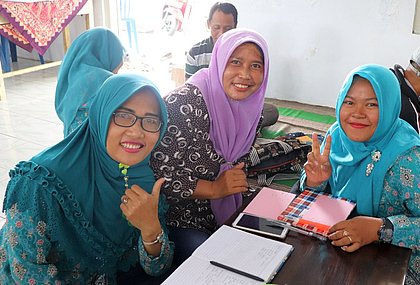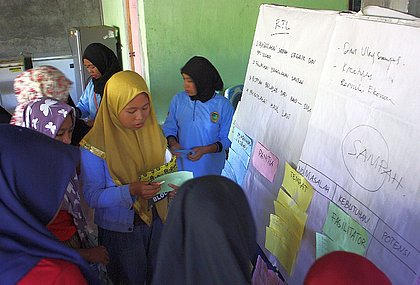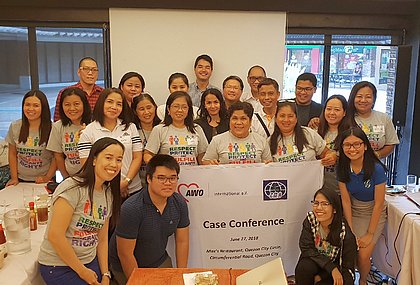The province of Nusa Tenggara Barat, which includes the island of Lombok, is rich in agricultural resources. Yet the region has deep-rooted socio-economic problems: in 2016, more than 800,000 residents were reported to be living in poverty. The province ranks 30th out of 34 on the Human Development Index, and the precarious living conditions mean that people are looking for alternative employment opportunities abroad. This is especially applicable to people living in and below the poverty line – as making a living in their native land means that they can barely provide for themselves, let alone for a whole family. Thus, people with low level of education, who are typically unaware of their rights, end up in jobs where they are massively exploited. Women are particularly affected by human trafficking. Many people work abroad as domestic workers, where they often become victims of sexual exploitation.
Together with our partner organization - PPK, we worked to ensure that migrant domestic workers are protected from exploitation and can assert their rights. PPK combined three approaches to accomplish this: Female migrant domestic workers and their families in Lombok Utara are brought together and strengthened through community organizations so that they can stand up for their own rights. In the second component,migrants are given trainings to increase their economic knowledge so that they can better and sustainably manage their finances and remittances. . Lastly, PPK also worked with the responsible government agencies in the villages, districts and provinces to develop guidelines in response to the needs of migrant workers. In this way, existing national guidelines for the protection of migrant workers can be better implemented.
Perkumpulan Panca Karsa (PPK) was founded in 1982 in response to the growing social needs of women at the time - such as discrimination, domestic violence and abuse. The NGO empowers marginalized women on the island of Lombok by helping them to improve their skills and economic well-being. As early as 1996, PPK recognized the need to work in the field of labour migration and began to develop a programme that specifically addresses the difficulties faced by migrant workers. Even then, large groups of labour migrants from Lombok left the country - in many cases undocumented.
Projectinfo
| Project | Safe migration for migrants from Lombok: Building a Sustainable Indonesian Migrant Worker Protection System at the Village and District Level in North Lombok |
|---|---|
| Place/Region | Lombok Utara (North Lombok) – specifically in the villages of Rempek, Gangga; Sambik, Gangga; Bangkol, Tanjung; Medana, Tanjung; Teniga, Tanjung; and Tegal Maja, Tanjung |
| Partner | Perkumpulan Panca Karsa (PPK) |
| Target group | Potential, current and returned migrant workers; victims of human trafficking; community representatives and local government officials |
| Activities |
|
| Duration | 2021-2023 |
| Budget | 60.000 Euro p.a. |
| Sponsor | BMZ |



